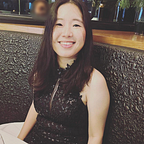Range: Why Generalists Triumph in a Specialized World
by David Epstein
Epstein’s book reinforces that exposure to multi-disciplinary knowledge can be a good thing as it contributes to creativity and the early sampling provides us with more options to find out what we would be good in.
Excerpts from the book:
A person don’t know what he can do unless he tries. Trying things is the answer to find your talent. We know that early sampling is key, as is diversity.
The question I set out to explore was how to capture and cultivate the power of breadth, diverse experience, and interdisciplinary exploration, within systems that increasingly demand hyperspecialization, and would have you decide what you should be before first figuring out who you are.
I was struck by what I found. One study showed that early career specialisers jumped out to an earnings lead after college, but that later specialisers made up for the head start by finding work that better fit their skills and personalities. I found a raft of studies that showed how technological inventors increased their creative impact by accumulating experience in different domains, compared to peers who drilled more deeply into one; they actually benefited by proactively sacrificing a modicum of depth for breadth as their careers progressed.
There was a nearly identical finding in a study of artistic creators. individuals with Tiger’s precocity and clarity of purpose, as complexity increases — as technology spins the world into vaster webs of interconnected systems in which each individual only sees a small part — we also need more Rogers: people who start broad and embrace diverse experiences and perspectives while they progress. People with range.
The psychologists highlighted the variety of paths to excellence, but the most common was a sampling period, often lightly structured with some lessons and a breadth of instruments and activities, followed only later by a narrowing of focus, increased structure, and an explosion of practice volume. That is, the more contexts in which something is learned, the more the learner creates abstract models, and the less they rely on any particular example. Learners become better at applying their knowledge to a situation they’ve never seen before, which is the essence of creativity.
I get a lot of students from schools that are teaching jazz, and they all sound the same. They don’t seem to find their own voice. I think when you’re self-taught you experiment more, trying to find the same sound in different places, you learn how to solve problems. Just as Tetlock says of the best forecasters, it is not what they think, but how they think. The best forecasters are high in active open-mindedness. They are also extremely curious, and don’t merely consider contrary ideas, they proactively cross disciplines looking for them. “Depth can be inadequate without breadth,” wrote Jonathan Baron, the psychologist who developed measurements of active open-mindedness.
No one in their right mind would argue that passion and perseverance are unimportant, or that a bad day is a cue to quit. But the idea that a change of interest, or a recalibration of focus, is an imperfection and competitive disadvantage leads to a simple, one-size-fits-all Tiger story: pick and stick, as soon as possible. Responding to lived experience with a change of direction, like Van Gogh did habitually, like West Point graduates have been doing since the dawn of the knowledge economy, is less tidy but no less important. It involves a particular behaviour that improves your chances of finding the best match.
And yet every May, speakers all over the country fire up the Standard Graduation Speech, the theme of which is: don’t give up on your dreams. I know what they mean, but this is a bad way to put it, because it implies you’re supposed to be bound by some plan you made early on. The computer world has a name for this: premature optimisation. Instead of working back from a goal, work forward from promising situations. This is what most successful people actually do anyway.
In the graduation-speech approach, you decide where you want to be in twenty years, and then ask: what should I do now to get there? I propose instead that you don’t commit to anything in the future, but just look at the options available now, and choose those that will give you the most promising range of options afterward.
Research on creators in domains from technological innovation to comic books shows that a diverse group of specialists cannot fully replace the contributions of broad individuals. Even when you move on from an area of work or an entire domain, that experience is not wasted.
